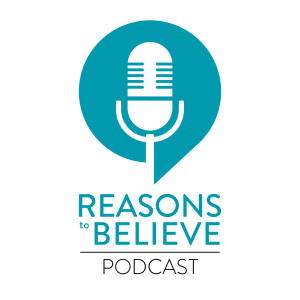Episodes

Wednesday Mar 22, 2023
Bison & Grass Diversity and Animal Smarts & God’s Image | Stars, Cells, and God
Wednesday Mar 22, 2023
Wednesday Mar 22, 2023
Join Hugh Ross and Fazale “Fuz” Rana as they discuss new discoveries taking place at the frontiers of science that have theological and philosophical implications, including the reality of God’s existence.
*Disclaimer: Audio quality and sound may be low for Hugh Ross' microphone*
Bison & Grass Diversity
A three-decade long field study in the Flint Hills ecoregion in Eastern Kansas shows that reintroducing bison to tallgrass prairie increased grassland species diversity by more than 100% compared to ungrazed areas and by more than 50% compared to areas grazed by domesticated cattle. In tallgrass prairie grazed by bison, researchers observed a continual increase in native plant species richness. Unlike domesticated cattle, bison engage in frequent wallowing, which increases habitat heterogeneity. Researchers noted that long-term, year-round grazing by bison resulted in plant communities that were resilient to the two-year severe drought that occurred from 2011–2012. The researchers concluded that “rewilding native megafauna could help to restore grassland biodiversity” worldwide.
Resources:
Animal Smarts & God’s Image
Animals are intelligent and display remarkable skills that reflect the ability to plan and problem solve. Some life scientists interpret this behavior as evidence that animal intelligence is closer to human intelligence than we might have initially thought. This claim seems to challenge the view that human beings are exceptional. According to Scripture, human beings stand apart from all other creatures because we bear God’s image. But if, in essence, human beings are no different from animals, it’s challenging to maintain that we are the crown of creation, as Scripture teaches. Yet, recent work by biologist Johan Lind from Stockholm University indicates that animals engage in behavior that resembles flexible planning through a different process: associative learning.In this episode, biochemist Fuz Rana explores the scientific and theological implications of Lind’s insight.
Resources:
What Can Associative Learning Do for Planning?
A-Learning: A New Formulation of Associative Learning Theory
Can Associative Learning Be the General Process for Intelligent Behavior in Non-Human Animals?
Additional Resources:

